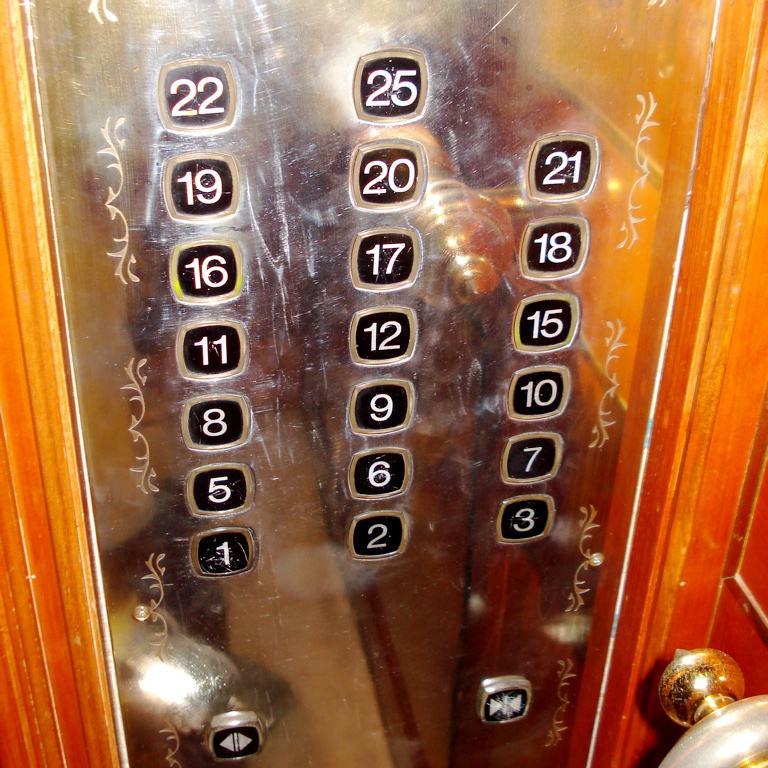It is said that the world's favourite number is lucky 7. You can see there are seven days of a week, 7 colours of the rainbow, seven notes on a musical scale, seven continents, and seven seas. Even in fictional stories number 7 is used very often. Some people find their birth date numerology number to be their lucky charm.
In numerology, Number 7 is considered as the universally lucky number in many of their auspicious work. The number 3 3 (?), pronounced san, is considered lucky due to its similarity in sound to the word that means birth. Additionally, this number represents the three stages in the life of humans - birth, marriage, death - that adds to its importance in Chinese culture. 3 (三), pronounced san, is considered lucky due to its similarity in sound to the word that means birth. Additionally, this number represents the three stages in the life of humans – birth, marriage, death – that adds to its importance in Chinese culture. In many cultures around the world, seven is considered a lucky number.
In fact, if you start looking for reasons why seven is so popular throughout history across various cultures, you'll find that the number seems to appear everywhere. For equally unique reasons 7 is considered lucky. When people are asked to pick a number between 1 and 10 the most common number that people pick is 7 because it seems 'the most obscure'. People will stay away from 1 and 10 because they are too extreme, all the even numbers have too much of a recognisable pattern and 5 is too obvious because of its position in the middle.
9 is too close to the end and 7 seems like a more obscure number than 3 and so we have our winner. The seven Classical planets resulted in seven being the number of days in a week. It is often considered lucky in Western culture and is often seen as highly symbolic. Unlike Western culture, in Vietnamese culture, the number seven is sometimes considered unlucky. Chinese numerology might seem like an obscure field, but this unique set of beliefs plays a big role in modern Chinese culture.
Read this article to gain insight into this quirky aspect of modern Chinese life. 6 is pronounced "liu" in Mandarin Chinese, and this sounds like the Mandarin Chinese word meaning "flowing, smooth, or frictionless". Therefore, the number 6 has the meaning of "everything will go smoothly" and is considered lucky especially where it occurs in multiples. In feng shui, the number 6 represents authority and power. There's also plenty of religious significance attached to the number. 6 (六), pronounced liu, is considered lucky as it sounds like the word that means 'to flow', and can indicate smooth progress in life.
Similar to 8, 6 is preferred in number plates and phone numbers. When a couple gets engaged, the man customarily offers a gift to the girl's family which is usually money and this gift signifies a harmonious life for the couple. A lot of people expressed an interest in number 7 for a variety of reasons and not just because it was considered lucky. A number of people said that they had no idea why they liked it.
Perhaps part of the answer lies in a seminal paper published in 1956 by the psychologist George A Miller called "The Magical Number Seven, Plus or Minus Two". Miller claims that it is more than just coincidence that the number 7 seems to be all around us. A popular way to fill out lottery tickets is to pick numbers that have personal meaning for you. For example, you might create a lucky number from your birthday, your wedding anniversary, or the birthdays of your spouse, kids, and/or grandkids. To find your life path number in numerology, which is the most significant of your lucky numbers, start by breaking down your birth month, day, and year into single digits. Then, add the single digits for each part of your birthday together.
Stop once you get a single digit number, which is your life path number. Why Is 7 A Lucky Number - Have you ever wondered Why Is 7 A Lucky Number? Why do some people think the number seven is lucky? When asked to groups of people to choose , most often the people choose number 7. It is believed that the number 7 generates strong emotions in the hearts of the people. In Christianity, the number 7 is mentioned many times.
Let's see more about the reason Why Is 7 A Lucky Number in this article. Are you keen to take full advantage of the lucky number 7 the next time you play casino games online? In that case, you'll be happy to hear that there are plenty of number seven-inspired casino games awaiting you at the BetMGM online casino. In China, lucky numbers have pronunciations that are similar to words with lucky meanings. Number 8 holds huge significance as a lucky number.
To a lesser extent 2, 6, and 9 are considered lucky. As well as these general number superstitions, fengshui and the Chinese zodiac dictate different number luck for different places/people. Many horoscopes include predictions of which days will be lucky for you — you can try playing the lottery on those days. They also include a list of lucky numbers for the day, week, or month.
Numerology is a belief that numbers resonate in a way that gives them spiritual properties. By decoding these resonations, you can pick lucky numbers, or even lucky days to play the lottery. 4 in China is considered terribly unlucky because it sounds like the word for "death".
It is really a bad idea to assign the number 4 to anything. Generally, door numbers and car registration numbers do not contain any 4s, especially not in the last digit-place. 2, pronounced "er", is considered lucky because "all good things come in pairs". Among young people in China, the number 2 is also used to describe the frank, innocent, reckless personality.
They believe "2" reflects a positive attitude towards life. If a person is to celebrate their 66th birthday, that is a grand occasion. New ventures or contracts are signed on dates that have 6 in them. Chinese' fondness for 8 can be seen in many other cases, such as house numbers, phone numbers, number plates, wedding dates, the date for opening a business, and so on. 8 is considered lucky and favored by Chinese because it holds meaning in both traditional and modern cultures.
Although Seven is generally considered a propitious number, it is at times disliked in China. The July 7th Incident of always reminds Chinese people of the painful history of the eight-year's Sino-Japanese War. 7 has the same pronunciation with 欺, Qi in Chinese, meaning cheating, lying to, or riding roughshod over someone. When choosing a telephone number or something like that, 7 is often left out of the list. The Seven Year Itch, the famous American movie, has long been a popular saying in China to describe the unsteady period of a marriage. It means that in the seventh year of a marriage, the couple faces serious problems in their relationship.
Once a bit of negligence or unwise action is taken, their marriage may end up in the same year. Other traditional lucky numbers from around the world include three (as in "good things come in threes"). In China and Japan, eight is considered lucky, whereas Germany favors fours. If you want to pick lucky numbers that favor your homeland or heritage, check out this list of Lucky and Unlucky Numbers From Around the World. It is believed that there is a powerful connection between number 7 and the religions of the world. Biblical scholars marks that number 7 is quite significant in the Bible.
If you take a look at the creation story, God made the world in 6 days and rested on the 7th day. With this, it is believed that the number seven often represents perfection or completeness in the Bible. The number 7 itself isn't committed to any religion, but to the people who follow its grace are devoted to a singular power. The number seven is widely regarded as the luckiest number of all. There are seven days of the week, seven colors in the rainbow, seven notes in a music scale, seven continents on Earth with seven seas to be sailed–the list goes on. As we head into the final week of the seventh month of the year, we celebrate this double Mersenne prime number in the Hamptons and on the North Fork, and hope it brings us all a bit of good fortune.
Many people consider their date of birth as their lucky number, but as per numerology, the number 7 is said to be universally lucky. This is one of the significant reasons why people use this number on many auspicious occasions or work. It has had significance in almost every major religion. In the Old Testament the world was created in six days and God rested on the seventh, creating the basis of the seven-day-week we use to this day. In the New Testament the number seven symbolizes the unity of the four corners of the Earth with the Holy Trinity.
The number seven is also featured in the Book of Revelation . The Koran speaks of seven heavens and Muslim pilgrims walk around the Kaaba in Mecca (Islam's most sacred site) seven times. In Hinduism there are seven higher worlds and seven underworlds, and in Buddhism the newborn Buddha rises and takes seven steps.
There are seven days of the week, seven colours of the rainbow, seven notes on a musical scale, seven seas and seven continents. While ghosts may be seen as omens, the ghost festival in the 7th month is widely celebrated. Although nowadays beliefs in lucky and unlucky numbers are often regarded as superstitious, Chinese people still keep such beliefs. A number is an important tool in accessing Chinese culture.
Below we give you complete lists of lucky numbers in Chinese culture. These repeated efforts on your lucky days train these days well to confer on you special blessings of luck Many persons ignore the importance of lucky days. If you have numerology number 7, you must train your lucky days well. This way, these days acquire special powers to throw lucky situations before you. You get success, if you execute your projects on these days.
7 may also be considered unlucky because 七 sounds like 欺 , meaning "cheat". The ancient Egyptians revered 7 as a lucky number, because it was the number of planets they could see in the sky. We know that the heavens played a big role in Egyptian life, and the significance of the 7 planets expressed itself in other important parts of their culture. In fact, the Great Pyramid of Meidium (Egypt's 2nd oldest) was originally built with 7 steps to honour the skies above.
Every gambler who deems number 7 to be their lucky number will love the Stormin 7s slot game by Ainsworth. For example, if you manage to scope out diamonds during gameplay, you'll instantly win a 7-figure prize. Furthermore, land a combo of Lucky Red 7s, and you'll earn a significant win of up to 75,000 coins!
There are five reels and 100 paylines with lots of other features to draw you in, like multipliers, scatters, and wilds. Due to its associations with good luck and fortune, it's unsurprising that the number seven has infiltrated the world of online slots and casino slot machines. It's a prime number , and it's safe to say that the number seven appears everywhere. There are seven days of the week, seven continents, seven seas, seven notes on a musical scale, seven colors of the rainbow, Shakespeare's seven ages of man, and Snow White's seven dwarves.
When you ask a group of people to think of a lucky number from 0 to 10, the maximum people would think of number 7. Even individuals who are not number people would opt for the number 7. There are a lot of religions and cultures where the number is considered to be lucky.
In fact, a few scientists claim that there are a lot of interesting properties about this number, which makes it so appealing. In Feng Shui, 4 is considered an unfortunate number. It sounds very similar to the Chinese word for death. … The number 5 could mean radical transformation or changes taking place while the number 7 is considered unlucky in Feng Shui. Researchers have found that, when asked to think of a number between one and 10, a significant number of people will think of the number seven.
… In many cultures around the world, seven is considered a lucky number. This probably explains the affinity many people feel for the number seven. 7 was widely used in ancient Chinese culture, for example the Seven Treasures for Buddhist Scripture refer to gold, silver, colored glaze, coral, amber, seashell, and agate.
Another example is the Double Seventh Festivalwhen the Milky Way Lovers can have their annual meeting only on July 7th. Therefore, July 7th is regarded as the Chinese Valentine's Day. Getting hung up about numbers can also reduce your odds of winning a fortune. People who pick 'lucky' numbers such as 3 and 7 are just as likely to win the lottery as people who pick numbers out of the hat. But if they hit the jackpot, they have to split the cash with more winners.
There is also a powerful connection between the number seven and the religions of the world. Biblical scholars point out that the number seven is quite significant in the Bible. In the creation story, God made the world in six days and rested on the seventh day. Scholars have found that the number seven often represents perfection or completeness in the Bible. The number seven enjoys a long history of positive associations across many different cultures.
In fact, if you start looking for reasons why seven is so popular throughout history across various cultures, you'll find that the number seems to appear everywhere. Similar mathematical sieving formulas have been employed in the past, but none has given rise to anything that is conventionally considered lucky. Luck, in the popular sense, is producing something good by chance or bringing about a favorable result, whether it's playing roulette or craps. Math and luck collide frequently but not within palpable everyday meaning. In mathematics, however, whimsical as it may seem, there are numerous ways to derive a lucky number. The latest method to determine what is called a lucky number is a list of positive integers derived through the process of sieving.
Think of sifting numbers, much as you would sift lumps from flour except using a mathematical formula. In the 1950s a group of mathematicians at the Los Alamos National Laboratories in California devised a sieving method to derive what they called lucky numbers. Numbers remaining after this procedure has been carried out completely are called lucky numbers. The first few are 1, 3, 7, 9, 13, 15, 21, 25, 31, 33, 37, ... Many asymptotic properties of the prime numbers are shared by the lucky numbers. The asymptotic density is , just as the prime number theorem, and the frequency of twin primesand twin lucky numbers are similar.

























